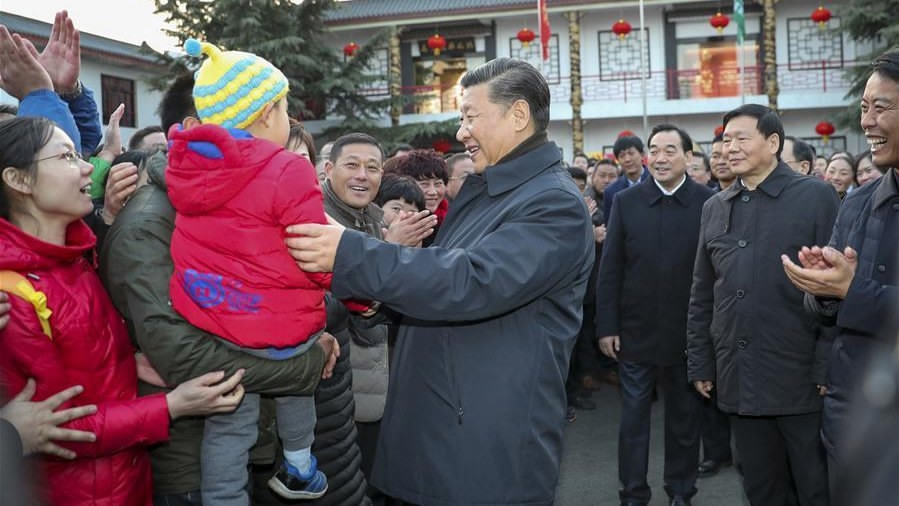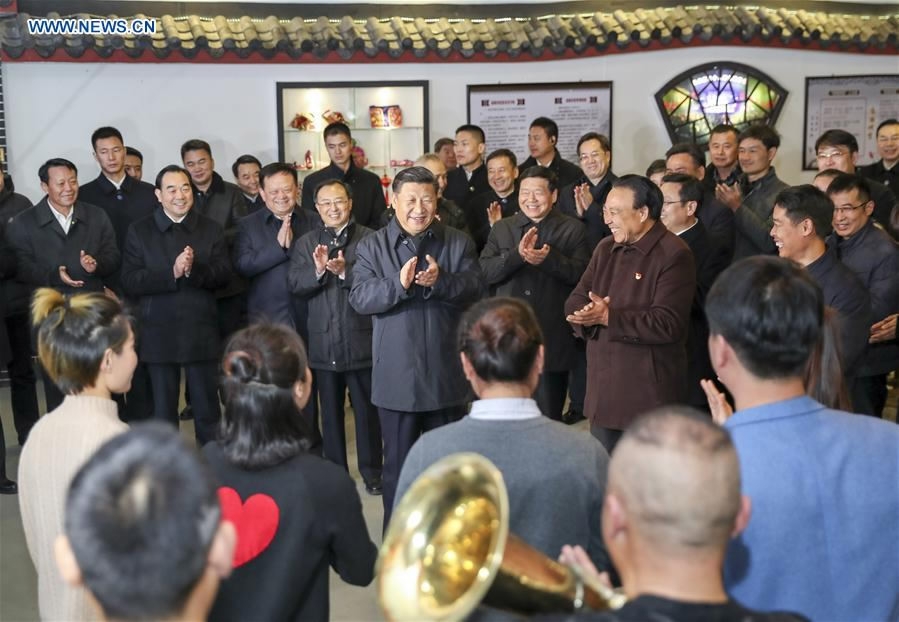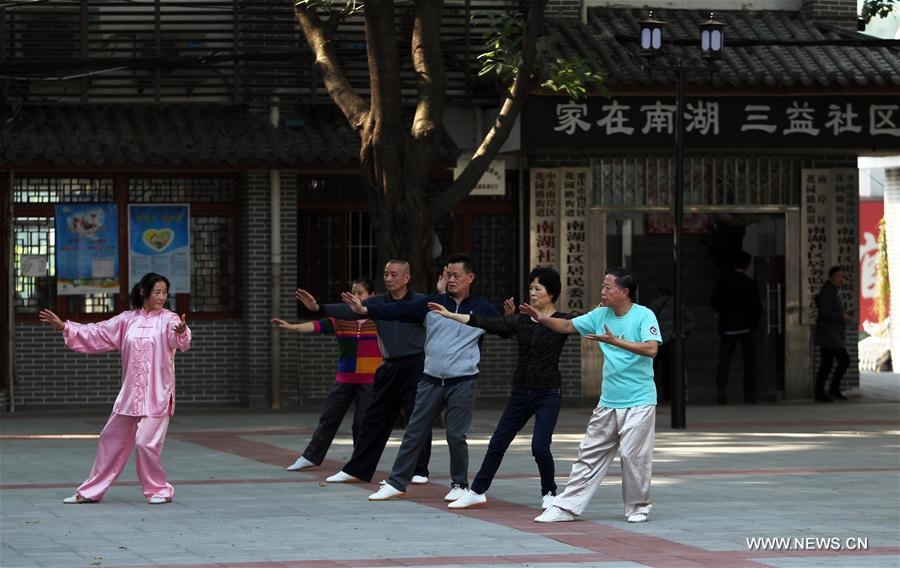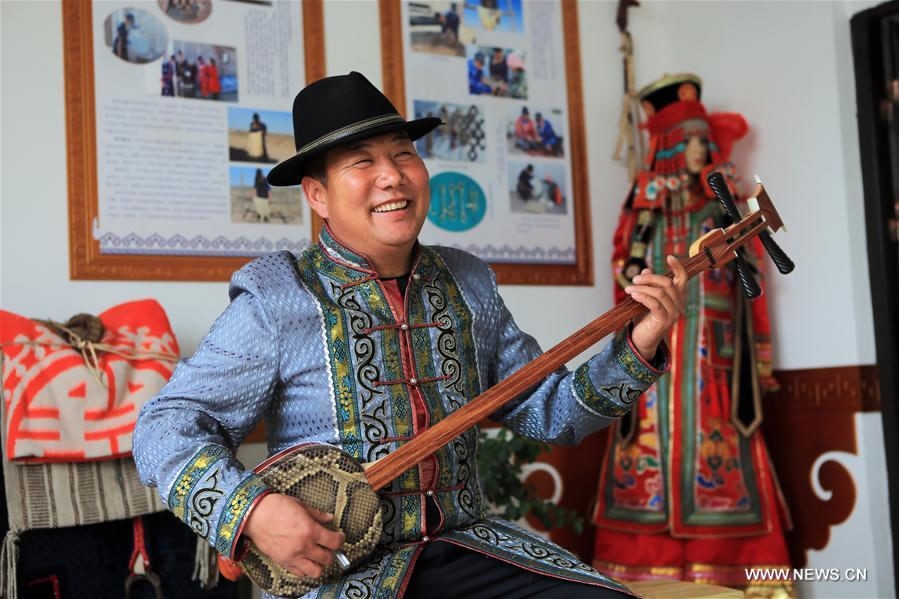
Opinions
13:27, 15-Dec-2017
Opinion: New progress in human rights protection in China
Guest commentary by Liu Huawen

On Friday, the State Council Information Office of China issued its latest white paper on progress in the protection of human rights in the country. Releasing such documents has become frequent in the country as the government tries to highlight and sum up human rights achievements and the new legal and policy-related developments concerning rights protection. The previous document, titled "The Development of China's Public Health as an Essential Element of Human Rights", was issued on September 30.
China is a large and heavily populated developing country, with rapid economic development. Its social progress is obvious. The very feature of the Chinese society today is that there is always something new, something that has changed or, to be precise, something that has improved.

Chinese President Xi Jinping watches the rehearsal of a local orchestra in Mazhuang village of Xuzhou, east China's Jiangsu Province, December 12, 2017. /Xinhua Photo
Chinese President Xi Jinping watches the rehearsal of a local orchestra in Mazhuang village of Xuzhou, east China's Jiangsu Province, December 12, 2017. /Xinhua Photo
The white paper is the result of mainstreaming human rights in China. It also demonstrates the progress made according to the Chinese National Human Rights Action Plan 2016-2020 adopted in 2016 by the Chinese authorities.
Legally, respecting and protecting human rights is a constitutional principle in China. Politically, the policy reflects the will and pursuit of the Communist Party of China (CPC).
From the newly released white paper, we can see that in recent years, especially since the 18th National Congress of the CPC, the many measures the government has taken to ensure the rights of the people, fully protect their interests, and promote legislation based on rational analysis, strict law enforcement, judicial justice and observance of the law by all citizens.

Local residents learning Tai Chi at their neighborhood in Nanhu community, southwest China's Chongqing Municipality, November 8, 2017. /Xinhua Photo
Local residents learning Tai Chi at their neighborhood in Nanhu community, southwest China's Chongqing Municipality, November 8, 2017. /Xinhua Photo
Judicial protection of human rights is an important part of their progress in any country, since the judiciary is the last line of defense to safeguard social fairness and justice.
The Chinese judicial reforms focus on the strengthening of the professionalism and independence of the judges and the transparency of the judicial work. More qualified individuals are now sitting as judges. Several trans-provincial circuit tribunals have been established by the Supreme People’s Court.
In Hangzhou, east China's Zhejiang Province, the first Internet Court has been put in place to answer the needs of the information era, and is making good use of the new technologies of the Internet and big data.
The transparency of the court is promoted effectively by establishing three online platforms for case filing, and the publication of decisions and enforcement information, which are accessible by the public according to law.

Mengkbaryal, a herdsman, singing songs to guests at his guest camp in Angsu township of Otog Front Banner in Erdos of north China's Inner Mongolia Autonomous Region, November 6, 2017. /Xinhua Photo
Mengkbaryal, a herdsman, singing songs to guests at his guest camp in Angsu township of Otog Front Banner in Erdos of north China's Inner Mongolia Autonomous Region, November 6, 2017. /Xinhua Photo
By 2020, China would have lifted all poor people out of poverty. Essential progress in this regard has been completed, laying a sound basis to realize what an ambitious historic goal is.
With the right to existence and to development as priorities, China is taking a holistic approach to human rights, advancing them comprehensively by the promotion of the rule of law, development and human rights at the same time.
Based on its history, culture and reality, China has its own path to promote human rights and the happiness of its people. Meanwhile, it attaches a lot of significance on constructive international cooperation.
President Xi Jinping raised the new concept of a community of shared future for mankind. The 19th CPC National Congress made it the very formal policy concept of China. It is conducive to the new international human rights governance.
Bearing the 2030 Agenda for Sustainable Development in mind, China is to play a leading role in the joint efforts of the international society in promoting human rights globally through South-North and South-South cooperation, especially by the implementation of the Belt and Road projects.
Ensuring the rights of the people and fully protecting their interests, among others, are key to achieving social harmony and cohesion, an ultimate goal of political and social governance. The realization of human rights is the dream of people worldwide. Chinese achievements and experiences represent the Chinese model of human rights development. It is more and more enlightening for global thinking about how to devise a socially harmonious and cohesive society.
(The author is a professor at the Institute of International Law, Chinese Academy of Social Sciences (CASS), and executive director of the Center for Human Rights Studies CASS. The article reflects the author’s opinion, not necessarily the views of CGTN.)

SITEMAP
Copyright © 2018 CGTN. Beijing ICP prepared NO.16065310-3
Copyright © 2018 CGTN. Beijing ICP prepared NO.16065310-3